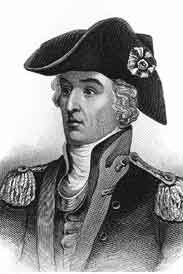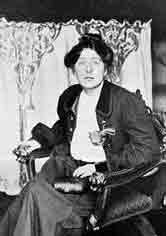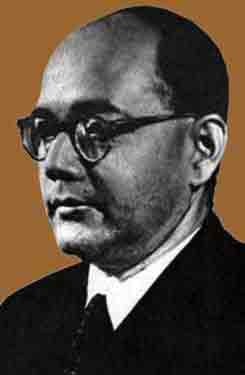States, Dissidents,
|
||||||||||||||||||||
On the 24th April last year a direct descendant of Francis Marion wrote to the Ilankai Tamil Sangam, USA. Francis Marion was a distinguished war-hero in the American Revolutionary war. He was nicknamed the ‘Swamp Fox’ by the British, because of his elusive tactics; they just couldn’t catch him. This writer said: “Congratulations on your Fine Victory at Elephant Pass and your excellent web page. As an American raised on the American Revolution and the Declaration of Independence I can't help rooting for the LTTE. If the Tigers are ‘Terrorists’ then so were George Washington, Ben Franklin, Thomas Jefferson and, of course my Great Great Uncle, Francis Marion (aka The Swamp Fox).
The government of the United Kingdom, which has now designated the LTTE as terrorists, had also smeared George Washington, Benjamin Franklin, Thomas Jefferson and Francis Marion, with the same brush. In fact, back in 1776, all fifty-six leaders of the American Revolution were branded, and Britain wanted them ‘dead or alive.’ Their crime: they signed the American Declaration of Independence. Not that we want to appear presumptuous, comparing our war for freedom in Sri Lanka to the Great American Revolution, but we cannot help noticing the irony. It is that the LTTE is an organization that is fighting for a goal that is identical to that which these fifty-six American heroes declared and fought for: “When in the course of human events, it becomes necessary for one people to dissolve the political bands which have connected them with another, and to assume among the powers of the earth, the separate and equal station to which the Laws of Nature and of Nature's God entitle them, a decent respect to the opinions
of mankind requires that they should declare the causes which impel them to the separation…”
Two hundred years later, on the 14th of May 1976, the people of Thamileelam too declared ‘the causes which impel them to separation’ [see The Vaddukoddai Resolution], and then went to war, just as the Americans did, ‘to assume among the powers of the earth, the separate and equal station to which the Laws of Nature and of Nature's God entitle them.’ It is this war that is now being labeled as ‘terrorism’ by the government of the United Kingdom. It is the same United Kingdom that outlawed the other war also.
Branding those who challenge authority, as ‘terrorists’ is not a new phenomenon in human history. Ever since its first usage against the French Anti-Jacobin groups in the eighteenth century, it had become increasingly more common for states to brand dissidents as ‘terrorists’, even when some of the dissidents had not committed any acts of violence. The Nazi Third Reich called its dissenters terrorists; to the British the Indian Freedom Movement was terrorism; to the Apartheid regime of South Africa those who fought for equality as human beings were terrorists. What Britain has done with its anti-terrorism law is to legitimize and codify this conduct. And, it has tagged any and every act of violence to espouse a political cause (‘advancing a political, religious or ideological cause’, as described in the law ), even ‘damage to property’ (also as described in the law), as ‘terrorism.’
The framers of this piece of legislation have tragically overlooked the fact that no social change of any significance has ever taken place in human history without some violence – be it the women’s right to vote, the end of slavery, or the end of colonialism. If this law was in place then all these movements would have been labeled as ‘terrorism’, and the leaders, and even their supporters, would have been charged as ‘terrorists.’ The relatively innocuous Boston Tea Party, where the Americans threw out some tea chests belonging to the British East India Company into the waters of Boston harbor [16 Dec 1773], too would have been characterized as terrorism under this new law. Well, this is not surprising. Back then the British did call that also with an synonym for terrorism.
The fact that, some of the political groups resorted to violence only when non-violent means of expressing opposition failed, was also lost on the framers of the British legislation. The women’s suffragette movement in England, after years of peaceful agitation, finally had to resort to arson to be heard. It took the Tamils of Sri Lanka nearly 30 years of non-violent protest (and being repeatedly beaten-up for it) to resort to the ‘violence’ option. In today’s context, those who are struggling to protect our environment against the onslaught of greedy corporations too have had to resort to some violence. Incidentally these environmentalists are being dubbed ‘Eco-Terrorists’. The offending corporations have been for sometime using all their muscle to push this term - ‘eco-terrorism’ - into common usage. Now they have won. ‘Damage to property’ in the course of political protest is now ‘terrorism’ in the UK, under this new law.
In saying all this, we do not seek to justify every criminal behavior. Some, such as hijacking a plane, or holding up a bank, or cultists using ‘bio-gas’ in the subways of Tokyo, are obvious acts of ‘terrorism’ and should be dealt as such. Similarly, those regimes that bomb civilians and direct their security forces to torture, rape and kill with impunity, should also be punished for ‘terrorism.’ What we find objectionable, however, is the fact that the British are seeking to criminalize only the powerless, fighting for survival.
Mankind, despite all the progress it has made so far, has not changed for centuries in one respect, and that is in the matter of how states deal with dissidents (especially the name calling part). The LTTE should not despair. After all, they are in good company – the company of George Washington, Benjamin Franklin, Thomas Jefferson, Mahatma Gandhi, Emmeline Pankhurst, Menachim Begin, Subhas Chandra Bose, Bhagat Singh, Nelson Mandela… |
||||||||||||||||||||
|
SANGAM RESEARCH [3 March 2001] |
||||||||||||||||||||







